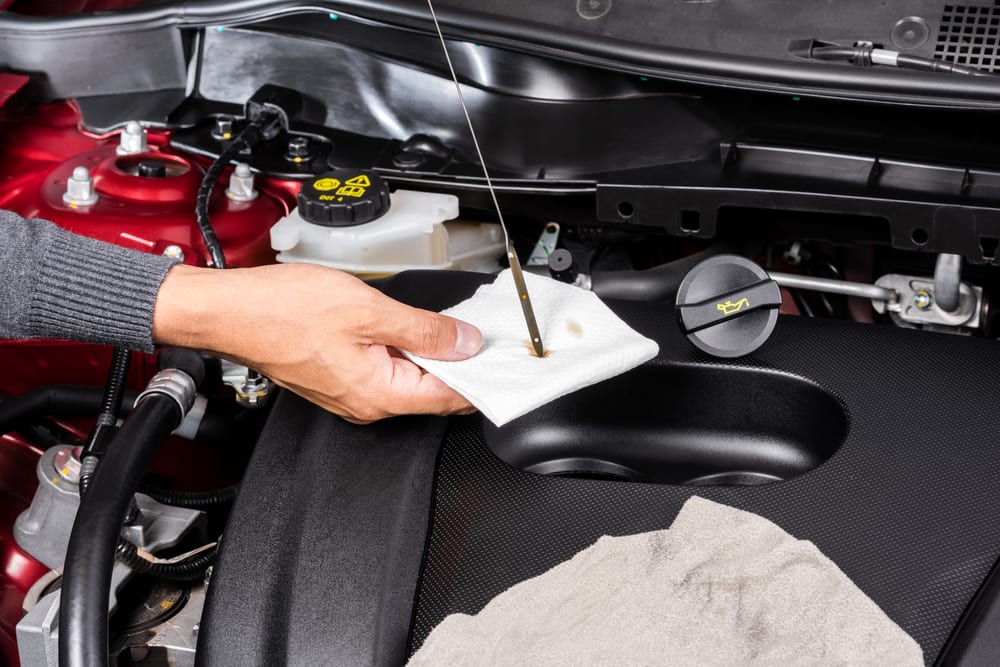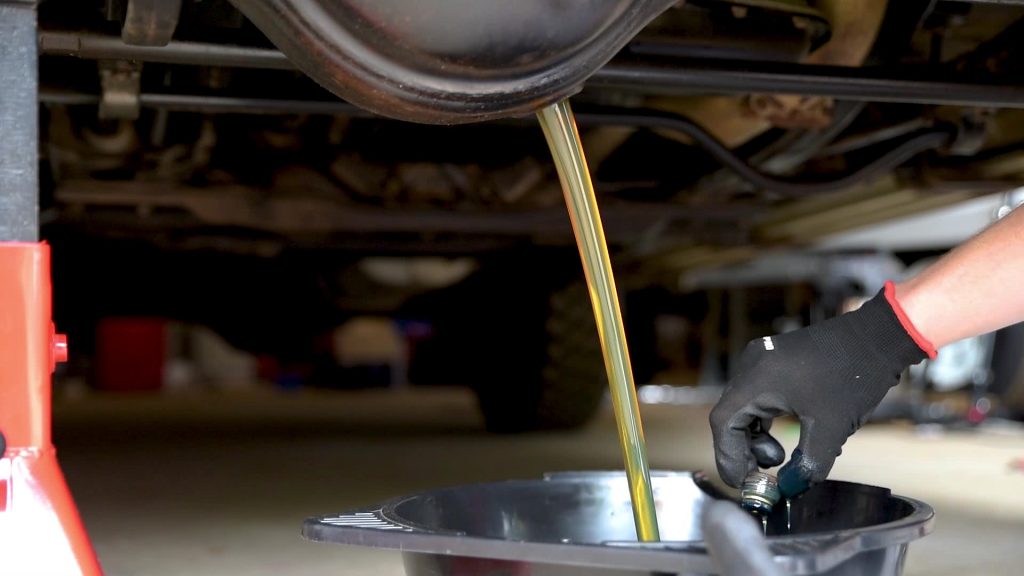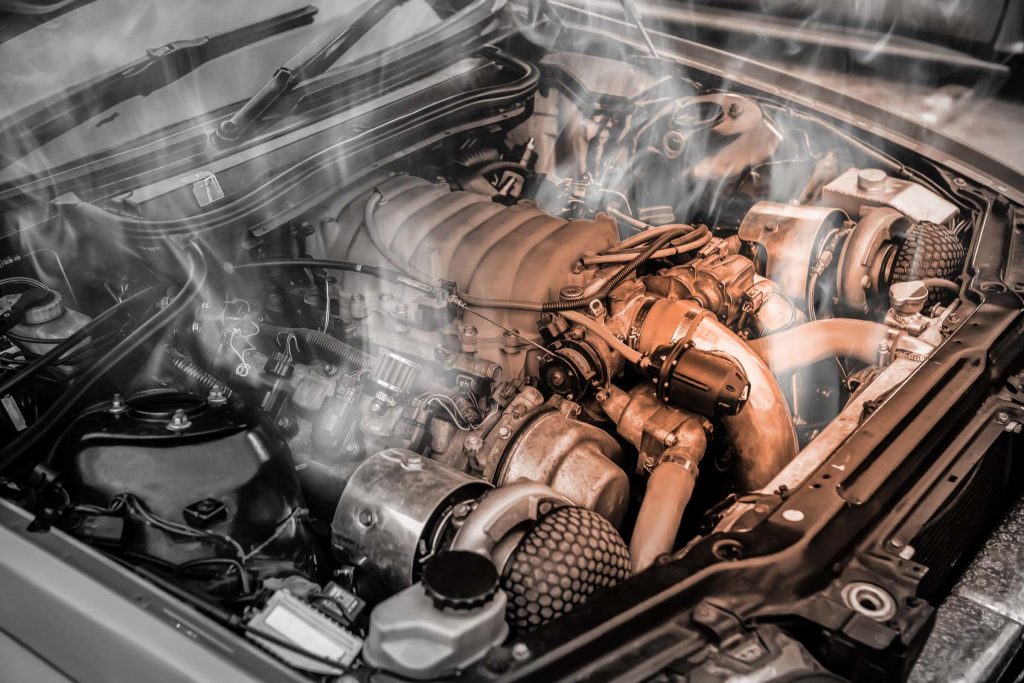Here are the 6 type of oil change that need to be checked and changed in a car.

- Engine oil: This is the most common oil that needs to be serviced in a car. It lubricates the engine, reduces friction, and helps cool engine components.
- Transmission oil: Also known as automatic transmission fluid (ATF). This oil is used to lubricate the gears in the transmission system and allows for smooth shifting. There are different types of transmission fluids depending on the type of transmission in your car (manual or automatic).
- Brake fluid: This fluid is used in the hydraulic braking system and helps to transfer the force from the brake pedal to the brake pads. It is essential for the proper functioning of the brakes.
- Power steering fluid: This fluid is used to provide hydraulic pressure to the power steering system, making it easier to steer the car.
- Coolant/antifreeze: This fluid is used to regulate the temperature of the engine and prevent it from overheating. It is also used in the heating system to provide warm air to the cabin.
- Differential oil: This fluid is used to lubricate the differential, which is a component in the drivetrain that helps to transfer power from the engine to the wheels. The Differential oil, also known as gear oil or differential fluid, is a specialized lubricant that is used to lubricate the gears and bearings inside the differential.

Here is a table summarizing the typical service intervals for the different fluids in a car, sorted by shortest service interval to longest.
When you should change those oils?
| Fluid | Service Interval |
|---|---|
| Engine Oil | Every 8,000-12,000 kilometers or as recommended by the manufacturer |
| Brake Fluid | Every 32,000-48,000 kilometers or as recommended by the manufacturer |
| Differential Fluid | Every 48,000-80,000 kilometers or as recommended by the manufacturer |
| Coolant | Every 48,000-80,000 kilometers or as recommended by the manufacturer |
| Transmission Oil | Every 48,000-96,000 kilometers or as recommended by the manufacturer |
| Power Steering Fluid | Every 80,000-160,000 kilometers or as recommended by the manufacturer |
Again, it’s important to note that the specific service interval for each fluid may vary depending on the make and model of your car, as well as your driving habits and environmental conditions. It’s always best to refer to your car’s owner’s manual for the manufacturer’s recommended service intervals for each fluid.
What will happen if you don’t change your engine oil?

If you don’t service your engine oil, it can cause several problems for your car. Engine oil is responsible for lubricating the engine’s moving parts, reducing friction, and carrying away heat, debris, and contaminants from the engine. Over time, the oil can break down and become contaminated with dirt, debris, and other particles, which can reduce its effectiveness.
If the engine oil isn’t changed regularly, it can become less effective at protecting the engine’s moving parts, which can cause excessive wear and tear and lead to engine damage. The engine may also start to make unusual noises, run less smoothly, and have reduced power and fuel efficiency.
In extreme cases, if the oil isn’t changed for an extended period, it can cause the engine to seize up, which can result in a costly repair or even the need to replace the engine entirely. Therefore, it’s essential to follow the manufacturer’s recommended service intervals for engine oil changes and keep up with regular maintenance to keep your engine running smoothly and avoid costly repairs.
What will happen if you don’t change your transmission fluid?
If you don’t change your transmission fluid, it can cause several problems for your car. Transmission fluid is responsible for lubricating the transmission’s moving parts, reducing friction, and cooling and cleaning the transmission. Over time, the fluid can become contaminated with dirt, debris, and other particles, which can reduce its effectiveness.
If the transmission fluid isn’t changed regularly, it can become less effective at protecting the transmission’s moving parts, which can cause excessive wear and tear and lead to transmission damage. The transmission may also start to shift gears more slowly or roughly, slip out of gear, or fail to engage altogether.
In extreme cases, if the transmission fluid isn’t changed for an extended period, it can cause the transmission to overheat and fail, which can result in a costly repair or even the need to replace the transmission entirely. Therefore, it’s essential to follow the manufacturer’s recommended service intervals for transmission fluid changes and keep up with regular maintenance to keep your transmission running smoothly and avoid costly repairs.
What will happen if you don’t change Brake fluid?
If you don’t change your brake fluid, it can cause several problems for your car. Brake fluid is responsible for transmitting the force from the brake pedal to the brakes, allowing you to slow down or stop your car. Over time, the fluid can absorb moisture, which can cause it to become contaminated and less effective.
If the brake fluid isn’t changed regularly, it can become less effective at transmitting the force from the brake pedal to the brakes, which can cause the brakes to feel spongy, reduce their effectiveness, or even cause brake failure. Moisture in the brake fluid can also cause corrosion in the brake system, which can damage the brake components and reduce their lifespan.
In extreme cases, if the brake fluid isn’t changed for an extended period, it can cause the brakes to fail completely, which can result in a dangerous situation and potentially cause an accident. Therefore, it’s essential to follow the manufacturer’s recommended service intervals for brake fluid changes and keep up with regular maintenance to ensure your brakes are working properly and avoid potentially dangerous situations on the road.

Is time to renew your road tax & insurance? Use our promo code “GOMOTOR” at GoInsuran.com for discount!

Submitting your news to Motortrader.com.my is easy. Simply send an email to [email protected] with your press release or announcement attached as a Word or PDF document. Please include your contact information and any relevant images or videos that you would like to accompany your news.